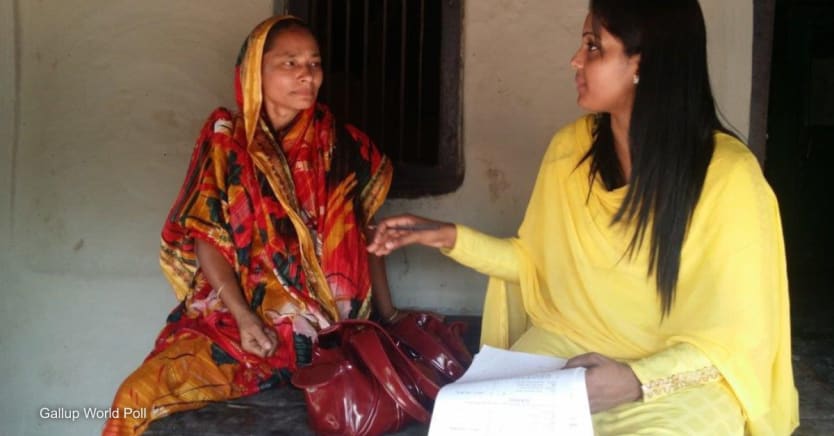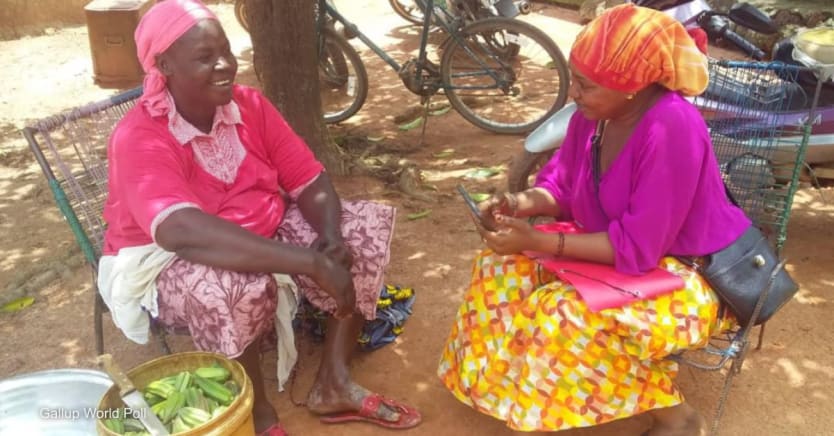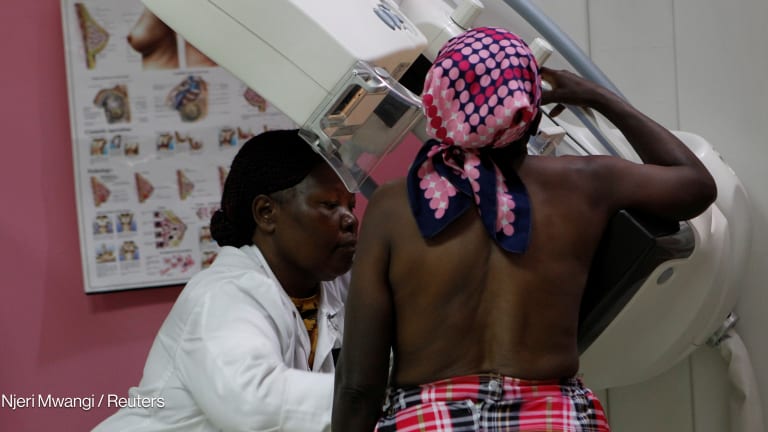
One of the most critical elements for economic, social, and national success is also one of the most ignored. Despite overwhelming evidence, head-nodding agreement, and repeated attempts at goal setting, women’s health remains a back-burner issue around the world.
In nearly every country, gender inequalities have also been exacerbated by the COVID-19 pandemic, none more so than in health.
Why air pollution conversations leave out women's health
While conversations on air pollution in the public discourse are centered on children and low-income households being the worst hit, women aren’t seen as being as vulnerable despite the mounting evidence.
Yet women’s health is the foundation of societies, economies, and communities everywhere. Still, it continues to be a paradox of progression and regression. For example, according to the World Health Organization, women make up more than 70% of global front-line health care workers, yet more than half of women are unable to access the health care services they need.
Investment in women’s health is a proven realization of human rights and gender equality. Further, without healthy women, workforces decline, education suffers, and populations stagnate.
With less than eight years to go until the deadline for the 2030 Sustainable Development Goals, it is apparent that without accelerated, concerted action to prioritize women’s health, we cannot make progress against the world’s most pressing issues. It is a big undertaking — and one where cooperation is critical to marshal the best resources, thinking, and reach.
Collaboration is critical to prioritize women’s health
During my time as ambassador to Hungary and then at the White House, I saw firsthand how bringing the public and private sectors together to collaborate on issues creates greater awareness, understanding, buy-in, and ultimately better solutions. Most of the United States’ embassies around the world have officers whose focus is improving bilateral cooperation on environmental, science, technology, and health issues such as research agreements, targeted programs to promote preventive care, and advancing women and girls in STEM fields.
As WHO’s Ambassador for Cancer Control, and after years spent helping shape policy and conversations about women’s health as part of the National Cancer Action Board for the National Cancer Institute, the chair of the President’s Cancer Panel and working with everyone from grassroots NGOs to global health organizations, I have also seen the devastating impact neglecting women’s health — especially basic preventive care — can have on families, communities, and loved ones.
Women’s health needs sustained action, collaboration, and commitment from leaders around the world. As many describe it, neglect of women’s health is as severe a problem as climate change, with disproportionate but still widespread effects.
Looking at women’s health holistically
The long-term societal impacts of women not receiving health care must be realized. Looking at women’s health holistically is the first step in doing this.
The Hologic Global Women’s Health Index found that five dimensions of women’s health — preventive care, opinions of health and safety, emotional health, individual health and basic needs — together explain over 80% of women’s average life expectancy from birth. Making progress along even one dimension can lengthen and improve women’s lives — and benefit those people around them.
Just to illustrate one aspect, the study found that 1.5 billion women were not tested in the past year for any of the four critical diseases for women: cancer, diabetes, high blood pressure, and sexually transmitted diseases or infections. The public must recognize the impact that ignoring basic preventive care has on economies and countries.
For example, the labor force participation rate among women has slowly declined in sub-Saharan Africa. According to the World Bank in 2015, 61.5% of women participated in the workforce, but in 2020 that dropped to 59.6%. Women cannot fully participate in society and drive economic impact if they are not taking care of their health first. The global economy could add as much as $20 billion to $50 billion if more women were working.
Investing and putting resources aside for women’s health is what will drive us forward globally, leading to women's empowerment.
—Governments should work with the private sector to support women seeing health care professionals regularly.
According to the Hologic Global Women’s Health Index, an estimated 1 billion women and girls will have gone without talking to a health care professional in the past year. Several factors may be to blame including a shortage of health professionals within a close radius, transportation, an inability to get time off work, or a lack of childcare. In addition, with a lack of health literacy around the world, many women might potentially miss appointments due to not being able to read or being able to understand the urgency they need to take when addressing their health concerns.
While COVID-19 was a significant factor in not accessing health care professionals throughout 2020 and 2021, women were not being sufficiently screened for preventable and detectable diseases prior to the pandemic. WHO estimates that reducing global breast cancer mortality by 2.5% per year would avert 25% of breast cancer deaths by 2030 and 40% by 2040 among women under 70 years of age — and that early detection and regular screenings are two of the three pillars to achieve this. Saving the lives of 2.5 million women per year means more income, stronger families, and thriving societies.

The role of the public and private sector
Public and private partners should collaborate and develop data-driven solutions and benchmarking. Committing to working together to make progress against these targets would see huge gains. You cannot improve what you cannot measure — and measurement should include the perspectives of women who are and are not targeted by policy as a complement to official numbers. Due to the potential lack of health literacy, there may be many more women that have yet to be reached or polled to include their perspectives when road mapping solutions.
Public-private cooperation also leads to resources such as the Hologic Index, which provides data from the perspectives of women and girls and includes a science-backed road map for policymakers and the public. This can be used to raise awareness of the issue and identify where the gaps lie so that meaningful solutions can be found.
Cooperation and innovation through partnerships, backed by data and science, can help address the inequities in women’s health, provide better access, and lead to better economic opportunities for the future of female youth. Investing and putting resources aside for women’s health is what will drive us forward globally, leading to women's empowerment.
Women frankly deserve better, not just one day each year but year-round. Investing in our health should be a priority for government leaders and countries. Greater public-private cooperation in implementing policies can make tangible differences that positively affect women’s access to health care. By putting more resources into women’s health, we all will be able to flourish, contribute to society, and make history together.








